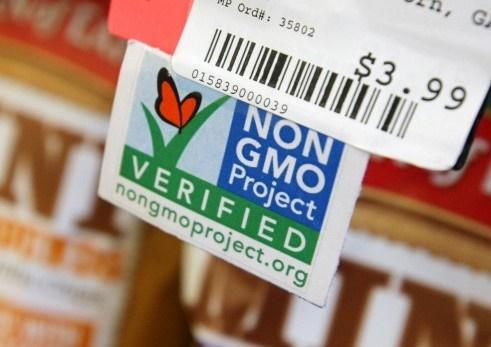Genetically modified organisms, commonly known as GMOs, have become quite a polarizing issue in the 21st century. Just the mention of GMOs can send people on both sides of the issue into a frenzy of facts and figures on how GMOs are either the future of agriculture or a serious threat to public safety. It is clearly a controversial issue. For this reason, it is important to clarify this column is not about GMOs themselves. This column is about the labeling of products that contain GMOs in marketplaces.
GMOs first appeared in the American marketplace in the 1990s without the majority of the American public’s knowledge. As it currently stands, companies must label GMOs that contain abnormal allergens such as a peanut protein in soy, but are not required to label all genetically modified foods under a voluntary labeling law. This measure does nothing to guarantee transparency as companies can simply opt out if and when they want to. The burden of information should not be on the customer. The Food and Drug Administration needs to mandate the labeling of GMOs. Labeling GMOs neither inherently supports nor contradicts the engineering of these products – it simply allows consumers to have more access to information to make decisions about their food and have freedom of choice when it comes to consuming GMOs. Essentially, what we put in our bodies is our choice and when it comes to information about how our food is made, transparency is essential.
Due to the polarization surrounding GMOs, it serves individuals’ best interests to label GMOs in the marketplace to allow freedom of choice. When we view a nutrition label as is, we can see the information with regard to dyes or the prevalence of artificial and natural components – this information is not solely for health reasons, but also for individual decision.
If someone is opposed to GMOs, they should be given the information necessary to avoid consumption. At the same time, if someone supports GMOs, they should be given the information necessary to show their support in the form of labels. Companies that produce GMOs have been reluctant to support mandatory labeling for all genetically modified food. They contend it heightens the perception that GMOs are dangerous. However, there is nothing that alerts the public that a certain product is dangerous more than a company being unwilling to be transparent with their process or their final product. An analysis of labeling policies found that “governments are likely to prefer voluntary or mandatory approaches based on their perceptions of what proportion of their citizens want information about the technology. In either case, labeling of process attributes is likely to become more prevalent in the future. Food companies will need to view labeling as an opportunity, not a threat, and devise marketing strategies that work with labeling policies.”
Labeling GMOs also reflects the majority will. According to the Center for Food Safety, 64 countries, including those in the European Union, Russia and China, mandate labeling of GMOs. Labeling of GMOs also has widespread bipartisan support in the U.S. A poll conducted by the Mellman Group of 1,000 American voters in 2012 showed that around 91 percent favored labeling GMOs. This poll is only one of several polls that has shown the vast and persistent majority in favor of labeling GMOs. The message from the public is clear – it is time to label GMOs.
Labeling GMOs guarantees further transparency with food production and gives consumers the information they need to make decisions that align with their personal beliefs. Labeling GMOs will allow consumers to make informed decisions in concurrence with their personal beliefs about GMOs. Labeling is also something the public overwhelmingly supports. Mandatory labeling removes the burden for the customer and enables freedom of choice when it comes to consumption.
Madeline Sweitzer ([email protected]) is a freshman majoring in political science and intending to major in journalism.
[Photo by Flickr user Whiteout Press]





















